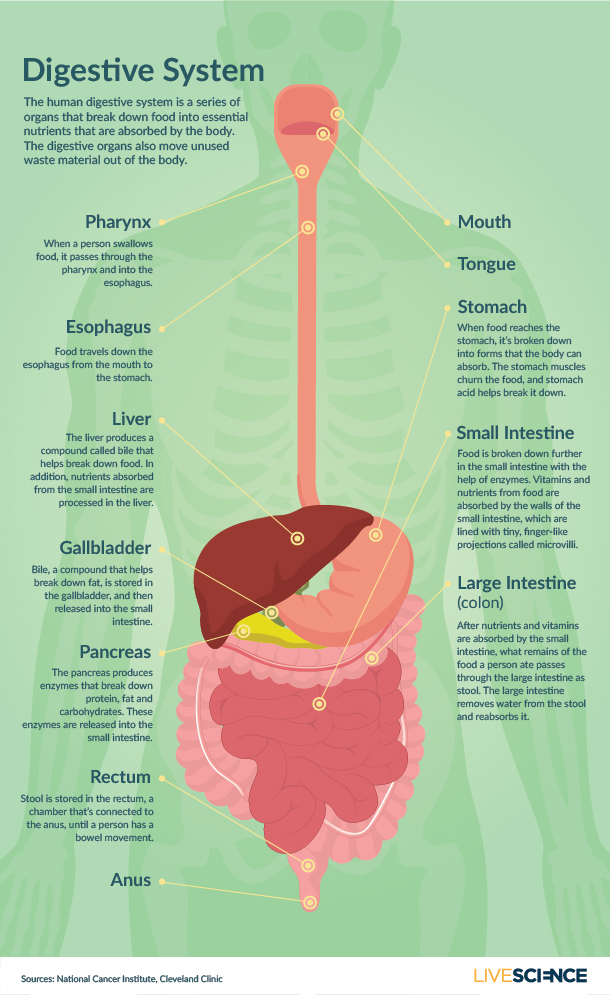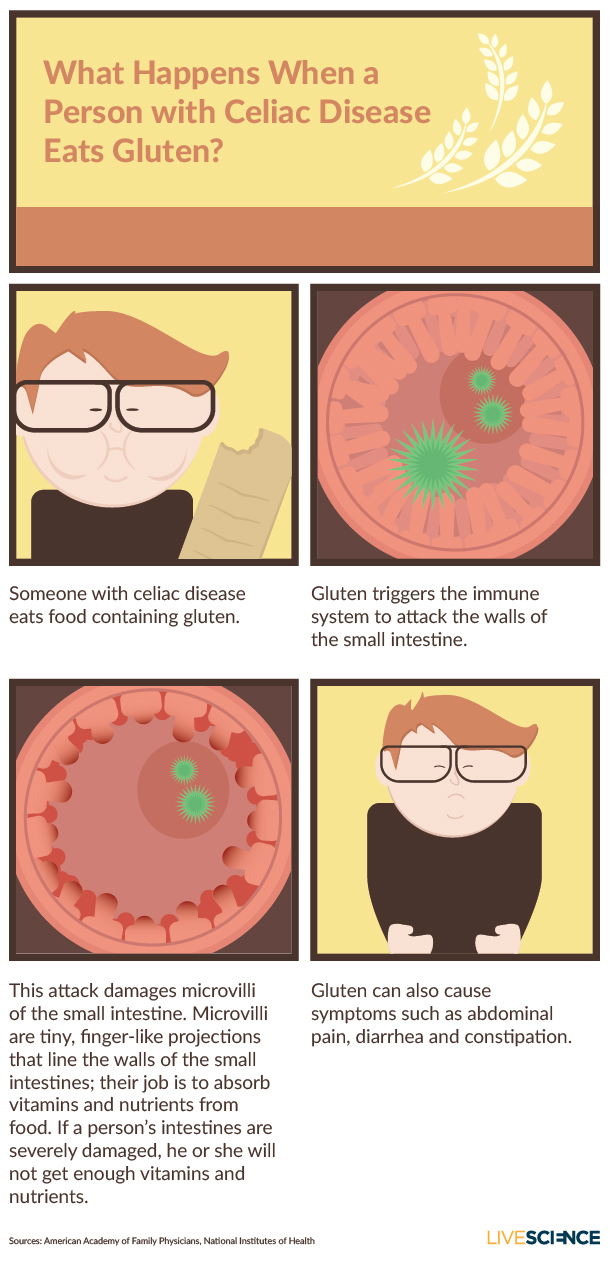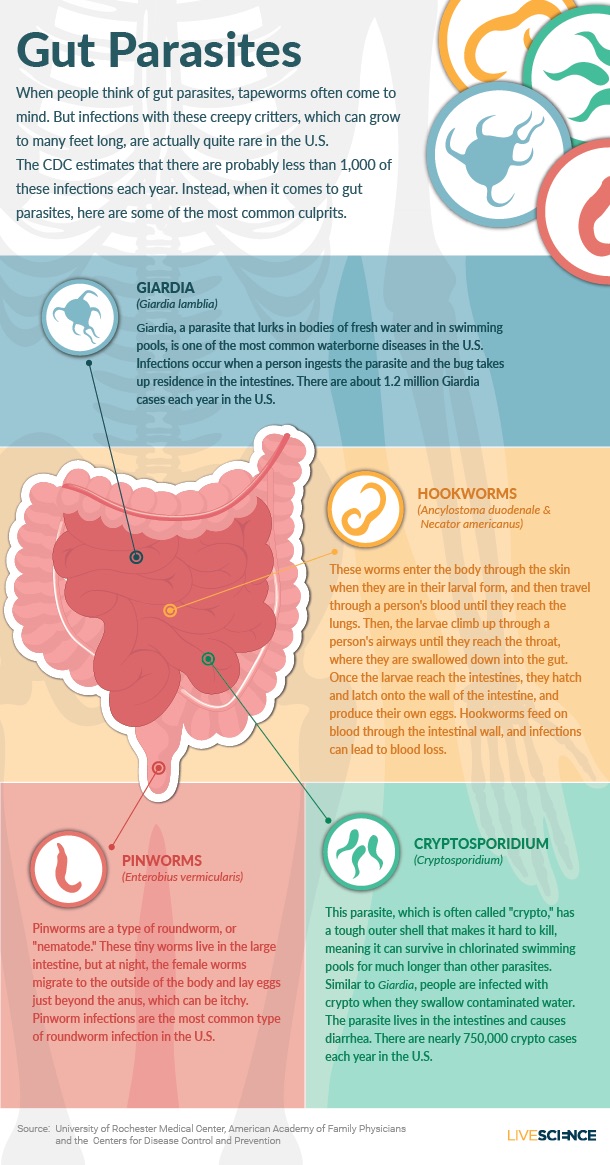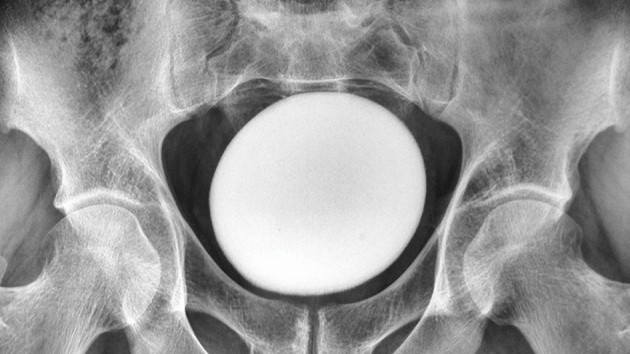Get Gutsy About Your Digestive Health


Live Science is bringing our readers a monthly series on personal health goals. We'll give you tips and tricks for reaching those goals, based on the advice we've gathered from the many health experts we've interviewed. Each month, we'll focus on a different goal, and the goal for July is "Get Gutsy About Your Digestive Health." Follow us on Facebook and Twitter to connect with other readers who are working toward these goals.
Jump to: January — Lose Weight | February — Eat Healthy | March — Start Exercising | April — Cope with Allergies | May — Protect Yourself from Sun and Heat | June — Stay in Shape Outdoors
Gut health affects everyone, whether they have a chronic condition or an occasional tummy ache. And nearly all of the activities you do each day, from sitting down to breakfast to settling in to bed at night, can have an impact on your gut health. This July, take control of your gut health with tips from Live Science. We've rounded up our best reporting to give you the details on digestive health, from easy explainers on common conditions to the latest studies in the realm of the gut.
Back to basics: A journey through the digestive tract
Your digestive health starts with the mouth and ends at the anus. Along this path, called the digestive tract, multiple organs play important roles in how the body processes food. Problems with these organs can lead to aches and pains, but before we get into what can go wrong in the gut (and how to keep it healthy), let's get back to basics with an overview of the body's digestive system.
More info:
- Digestive System: Facts, Function & Diseases
- Stomach: Facts, Functions & Diseases
- Small Intestine: Function, Length & Problems
- Colon (Large Intestine): Facts, Function & Disease
- 11 Surprising Facts About the Digestive System
Common gut conditions
Digestive issues can strike at any point along the body's digestive tract, from gastroesophageal reflux disease (GERD) in the esophagus, to inflammatory bowel disease down in the large intestine. Here are some of the common gut conditions that people may experience:
Acid reflux: Acid reflux, which goes by the medical name gastroesophageal reflux disease (GERD), is chronic condition that occurs when a person's stomach contents wash up into his or her throat. The condition can cause heartburn, which occurs when stomach acid burns the esophagus. Damage from GERD can increase people's risk for a condition called Barrett's esophagus, which, in turn, may increase their risk of a rare form of esophageal cancer, according to the National Institutes of Health.
Get the world’s most fascinating discoveries delivered straight to your inbox.
More info:
- Some Heartburn Drugs May Increase Heart Attack Risk
- 7 Tips to Make Holidays More Enjoyable for People with GERD
- Some Heartburn Drugs May Increase Stroke Risk
Stomach ulcers: More than 25 million Americans will experience a stomach ulcer — an open sore in the lining of the stomach that can cause a dull or burning pain — at some point in their lifetime, according to the Centers for Disease Control and Prevention. Although the condition was once thought to be caused by spicy foods, doctors now know that stomach ulcers are most commonly caused by a bacterium called Helicobacter pylori or medications such as nonsteroidal anti-inflammatory drugs.
More info:
- Europeans Brought New, Deadly Ulcer Bacteria to Americas
- How Easter Helped Bring Down a Medical Myth About Ulcers
- Does Spicy Food Really Cause Ulcers?
Inflammatory bowel disease: Inflammatory bowel disease (IBD) involves chronic inflammation in the gut. There are two main types of IBD: ulcerative colitis and Crohn's disease. In both conditions, a person can develop swelling and sores in the lining of the digestive tract and, in particular, in the lining of the intestines. An estimated 3 million Americans have some form of IBD, according to the CDC.
More info:
- Carbs Could Cause Trouble for Patients with Inflammatory Bowel Disease
- Inflammatory Bowel Disease on Rise in the US
- Inflammatory Bowel Disease May Be from Mom's Bacteria, Not DNA
- Cause of Crohn's Disease: Gut Fungus Now Suspected
Irritable bowel syndrome: When a person has irritable bowel syndrome (IBS), food doesn't move normally through the digestive tract. This can lead to a combination of symptoms, including abdominal pain, cramping, constipation and diarrhea. The disorder is very common, affecting as many as 1 in 5 U.S. adults, according to the NIH.
More info:
- Meditation May Ease Gut Ailments
- Try This Diet to Manage Irritable Bowel Syndrome
- National Institute of Diabetes and Digestive and Kidney Diseases: Irritable Bowel Syndrome
Diverticulitis: Diverticulitis is a condition that occurs in the wall of a person's gut, most commonly in the large intestine. The gut wall bulges out from its usual position and forms a small sac (called a diverticulum), and this sac becomes inflamed. The condition leads to about 210,000 hospitalizations each year, according to a recent study in the journal Gut. In many cases, diverticulitis can be treated with antibiotics and a liquid diet, which allows the gut to heal, according to the Mayo Clinic. In severe cases, patients may need intravenous antibiotics or surgery.
More info:
- Sorry, Steak Lovers: Red Meat Linked to Gut Condition
- National Institute of Diabetes and Digestive and Kidney Diseases: Diverticular Disease
- Mayo Clinic: Diverticulitis
Celiac disease: People with celiac disease cannot properly digest gluten, a protein found in grains such as wheat, barley and rye. Gluten triggers an immune response in the body, causing antibodies to attack and damage the walls of the small intestine. This damage can make it difficult for people with celiac disease to absorb nutrients from the foods they eat. About 1 percent of Americans have celiac disease, according to the National Foundation for Celiac Awareness.
More info:
- Can Patients with Celiac Disease Eat Oats?
- Typically Harmless Virus May Trigger Celiac Disease
- Celiac Disease Linked to Higher Risk of Pneumonia
- Celiac Disease in Kids Detected by Growth Screenings
Colon cancer
Colon cancer (sometimes called colorectal cancer, to include cancers found in the rectum) is the third most common cancer in both men and women in the U.S., according to the American Cancer Society (ACS). In 2017, the ACS estimates that there will be more than 135,000 colorectal cancer cases diagnosed in Americans. The disease is the second-most-common cause of cancer-related deaths in men and the third-leading cause of cancer-related deaths in women, according to the ACS.
There are many steps people can take to help prevent or reduce their risk of developing colon cancer. For example, lifestyle behaviors, such as doing enough physical activity and eating a fiber-rich diet, have been linked to a lower risk of colon cancer. In addition, screening for colon cancer by undergoing colonoscopies as recommended can both detect precancerous polyps and remove them. Scientists are looking for ways to make colonoscopies less uncomfortable for patients. In one instance, for example, scientists developed a magnetic robot that can perform the procedure, though it hasn't been tested in humans yet.
More info:
- Colon Cancer: Causes, Symptoms and Treatments
- Eating Nuts Linked to Lower Risk of Colon Cancer
- Yes, Your Diet Can Raise (or Lower) Your Risk of Colon Cancer
- Colorectal Cancer Rates Rise Sharply in Younger US Adults
- Cancer Screenings: Too Many Mammograms, Too Few Colonoscopies
Parasites
Though they are relatively rare in the United States, there are a number of parasites that can live in your gut, including tapeworms and roundworms. Symptoms of gut parasites can include abdominal pain, diarrhea and weight loss, according to the University of Maryland Medical Center. Although these creepy-crawlies induce a pretty strong "ick" factor, most can be treated with anti-parasitic medications.
More info:
- Tapeworms: Causes, Symptoms & Treatment
- Doctors Remove 6-Foot-Long Tapeworm from Man's Gut
- Parasitic Worms Burrow into Woman's Stomach After Meal
- Man Contracts Gut Parasite After Eating Sushi
Maintaining a healthy gut: probiotics
But gut diseases and parasites don't tell the whole story. It's also important to take steps to maintain a healthy gut. Scientists now know that probiotics, which are commonly found in products lining store shelves today, play a role in maintaining good digestive health. These "good bacteria" live in the gut as part of the vast microbiome, or the body's entire community of bacteria. Researchers are just scratching the surface of how these microbes affect our health, but so far, the results are promising.
More info:
- Probiotics May Help Reduce Blood Sugar Levels
- 8 Tips to Be a Probiotic Pro
- Don't Be Fooled: 5 Probiotics Myths
- Probiotics' Future: 3 Promising Areas of Research
- Probiotics May Help Relieve Seasonal Allergies
- Kids with Puzzling Stomachaches Might Benefit from Probiotics
The future of gut health: poop transplants?
As scientists learn more and more about the multitude of bacteria that live in the gut, a second line of inquiry is emerging: Can doctors treat health problems with these bacteria? Fecal microbiota transplantations, known colloquially as "poop transplants," are shaping up to be an effective way to treat problematic gut bacteria and, in particular, infections caused by a dangerous bacterium called Clostridium difficile.
Now, a new question is emerging: If poop transplants can treat C. diff, what else can they do?
More info:
- 'Poop Transplant' Changes Play Out Over Several Months, Study Finds
- For Fecal Transplants, Frozen Poop Just as Good
- Frozen Poop Is As Good as Fresh Poop for C. Difficile Treatment
- Poop Goes Mainstream: Fecal Transplants Get Past the 'Ick'
- Can a 'Poop Transplant' Change Your Weight?
What about gluten?
To some people, gluten may sound like just a buzzword. But people with certain health conditions —namely, celiac disease — should avoid eating the gelatinous protein, which is found in wheat, barley and rye. Gluten gives dough its elasticity and helps make baked goods chewy. And although its role in celiac disease is clear, scientists are still studying how gluten affects people who do not have celiac disease, including those with a condition called non-celiac gluten sensitivity. (People with non-celiac gluten sensitivity experience symptoms when they eat gluten, but don't test positive for celiac disease.) If you don't have gluten sensitivity or celiac disease, gluten is totally safe to eat.
More info:
- What Is Gluten?
- Gluten-Free Diet: Benefits & Risks
- Going Gluten-Free Won't Help You Avoid Diabetes
- Some People Who Avoid Gluten Also Avoid Vaccines
- Gluten-Free Diets Don't Lower Heart Disease Risk
- Americans Claim Gluten Sensitivity More Than Others
Originally published on Live Science.






